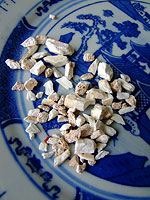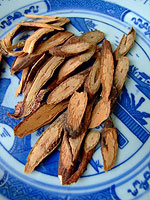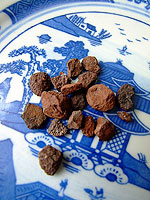TCM Treatment Principles for Insomnia
Insomnia is the inability to obtain sufficient sleep, difficulty falling asleep or being unable to asleep throughout the night. This leads to fatigue, low energy, diminished mental alertness and concentration during the daytime. Insomnia is usually due to temporary causes, such as jetlag, illness, stress or drinking too much coffee. When it occurs nearly every night and lasts a month or longer, then you should seek help.
From a TCM viewpoint, insomnia is a manifestation of a shen (spirit) disorder which various internal disharmonies makes the spirit restless and thus creates sleeping problems. During the consultation, physicians will ask about the individual's sleep pattern and degree of daytime fatigue; furthermore, one's lifestyle as well as regular emotional and physical state also needs to be taken into account. Typically, individuals will under go special examination techniques for assessment, and based on the collected clinical information, a subtle pattern of disharmony will be diagnosed and a specific treatment plan devised.
According to TCM experience, difficulty in falling asleep means the body has accumulated heat or fire pathogens; restless sleep means the body has both pathogen accumulation and certain aspects of deficiency; easily arousal from sleep and difficulty falling back to sleep are simply deficiency usually seen in a weakened spleen and heart. When associated with signs like abdominal distension, gastric discomfort, belching and lack of appetite, the insomnia is usually due to spleen and stomach disorders. Heart disorders may also appear with symptoms such as dream-disturbed sleep, dizziness, headache and forgetfulness; frequent fearful awakening, timidity, irritability and sighing are associated with disorders in the liver and gallbladder.
Since TCM regards insomnia as one of the signs of an internal disharmony, the prescribed herbs always aims at resuming harmonious function of the diseased organs, ensuring normal supply of the fundamental substances so as to rebalance the body. The herbs work together to achieve a general regulating effect to the overly active body system, make it shift to more quiet state and prepare for sleep.
 |
 |
 |
Fossil bone |
Tuber fleeceflower stem |
Magnetic stone |
In addition, certain sedative ingredients are also prescribed side by side in the prescriptions. They can enhance the effects of easing the mental symptoms. Common herbs for tonifying the heart and calming the spirit are:
| suan zao ren |
sour jujube seed |
Semen Ziziphi Spinosae |
| bai zi ren |
Chinese arborvitae kernel |
Semen platycladi |
| ye jiao teng |
tuber fleeceflower stem |
Caulis Polygoni Multiflori |
| yuan zhi |
Chinese senega |
Radix Polygalae |
| fu xiao mai |
shriveled wheat |
Fructus Tritici Levis |
| wu wei zi |
schisandra |
Fructus Schisandrae |
When the spirit is so irritated that it causes serious mental derangement, epilepsy, distractibility and restlessness, TCM believes that "heavy" ingredients should be added to calm down the body:
| zhu sha |
cinnabar minerals |
Cinnabaris |
| zhen zhu mu |
nacre |
Concha Margaritifera |
| long gu |
fossil bone |
Os Draconis |
| ci shi |
magnetic stones |
magnetitum |
| long chi |
fossil teeth |
Dens Draconis |
| hu po |
amber |
Succinum |
Generally, insomnia has a good prognosis for most individuals. When no underlying cause is found for the insomnia, the more acute and severe the sleeping problem, the easier it is to treat, because there are no extensive pathological changes. However, if insomnia becomes chronic, treatment may take months.
|